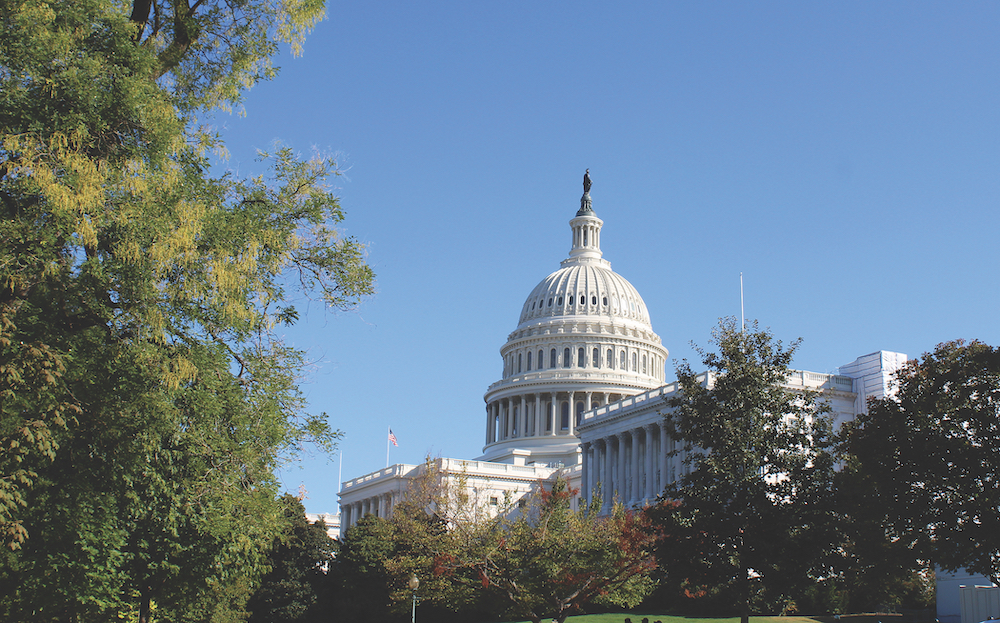CMS 2025 Medicare physician-fee-for service final rule released
Rule includes new covered condition for dental services

The Centers for Medicare & Medicaid Services published a final rule for the 2025 Physician Fee Schedule. The rule addresses payment of dental services for patients with end-stage renal disease while on dialysis. It also discusses claims processing and guidance on Medicare dental claims in federally qualified health centers.
The final rule finalizes changes for Medicare payments under the Physician Fee Schedule and other Medicare Part B policies. The Physician Fee Schedule is part of the Biden administration’s strategy to increase equitability in the nation’s health care system.
This final rule comes after the ADA submitted a letter in September that included feedback on several critical areas where dental services and broader health care provisions overlap.
The Association had expressed support for CMS’ proposal to cover payment for dental services for patients with end-stage renal disease undergoing dialysis services. The final rule states that dental services qualifying for payment include dental or oral examination performed as part of a comprehensive workup prior to or contemporaneously with dialysis services for patients with end-stage renal disease, or medically necessary diagnostic and treatment services to eliminate an oral or dental infection prior to or contemporaneously with dialysis services for patients with end-stage renal disease.
The final rule states that payment for dental services can occur for procedures performed in outpatient or inpatient settings. Additionally, payment for dental services can occur for Medicare beneficiaries with end-stage renal disease whether they are undergoing hemodialysis or peritoneal dialysis at home or in an end-stage renal disease facility.
Diabetes, sickle-cell disease, hemophilia and immunosuppressive treatment for autoimmune diseases still do not quality as covered dental services in the final rule. The ADA had said in the September letter that, “there is no specific medical services that we could identify associated with diagnosis and management of diabetes whose outcomes can be inextricably linked to provision of dental care.”
The final rule states that CMS will delay implementation for both the International Classification of Diseases codes, known as ICD-10, and KX and GY administrative claim modifiers until July 1, 2025. The ADA advocated for a delay in implementation because it would provide more time for testing and demonstration with dental practice vendors.
“We agree with commenters that suggested a mid-2025 effective date and believe that this timeframe would allow sufficient time for comprehensive testing, reporting and educational materials for healthcare providers, vendors and payors,” reads the final rule.
Regarding fees, CMS thanked commenters “for these suggestions and will take them into consideration in our future development of payment policies for dental services.”
CMS also did not make final determinations on whether furnishing oral appliances for sleep apnea should be transitioned from durable medical equipment fee schedule to the CMS physician fee-for-service schedule.
The final rule addressed how rural health clinics and federally qualified health centers will be able to bill Medicare for dental services. Essentially, they can bill for separate dental and medical visits — even if they occur on the same day and will not be paid by local contractor pricing by the Code on Dental Procedures and Nomenclature, but instead by the federally qualified health center visit charge set by the federally qualified health center prospective payment system published annually by CMS.
“If a [rural health clinic or federally qualified health center] practitioner believes the dental services for which they submit Medicare claims are inextricably linked to a covered service, a modifier may be reported on a [rural health clinic or federally qualified health center] claim for payment purposes,” according to the final rule. “We intend to provide additional instruction and education through subregulatory guidance regarding the usage of the KX and GY modifiers on claims submitted for dental services inextricably linked to covered medical services.”
For providers interested in treating Medicare beneficiaries, please visit www.ada.org/medicare.



